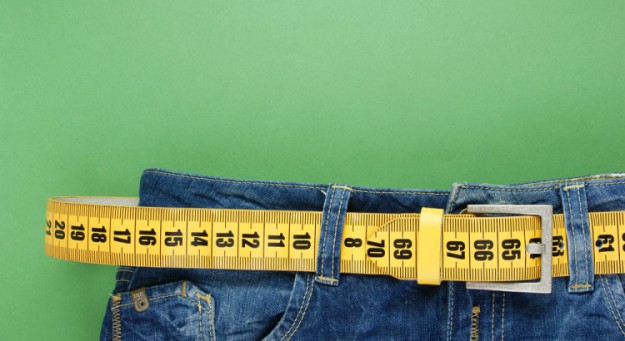Waist measurement vs. BMI: Which is more accurate?
mis à jour le 14 July 2015 à 18:34According to new research, having a body mass index (BMI) lower than 25 is not a sign of longevity. What matters above all, is the relation between our waist measurement and our height. Step off the weighing scales, and trust the good old measuring tape.
For years, it has been repeated to us that having a body mass index (weight in kg / size in cm²) over 25 is a sign of being overweight and increases the risks of diverse diseases (cardiovascular problems, diabetes, high blood pressure). Also, the higher the figure, the higher the danger. We also knew that this measure was not foolproof. Indeed, high-level sportsmen (rugby players, for example) rarely fit into these standards. They may go into the criteria of being "overweight", but they are also healthy - simply because the BMI does not differentiate between thin mass (muscles), and fat mass (the fat!). The higher the amount of fat , the more our health is threatened in the short, or long term. That's why it is necessary to find a more relevant indicator, to know who really needs to lose weight. In particular, to detect those who have BMI lower than 25 but very high cardiovascular risks.
A NEW DEFINITION OF 'OVERWEIGHT'
After having examined closely 20 years of studies carried out on non-smokers in Great Britain, the researchers of Cass Business School of the University of London propose a new model. According to them, our waist measurement should not exceed half of our height. To put it clearly, if you measure 1.70m, your waist measurement should not exceed 85cm. Every additional centimetre impacts our health, increasing the risk of infarction, diabetes and premature death. This way of proceeding enables us to measure abdominal fat, the one thing that is considered the most fatal for our health. Moreover, it is better to have a 'pear' silhouette than an 'apple shape. The authors of the study have asked health authorities to immediately adopt this new standard in their public health screenings. According to them, an excess of abdominal fat can take off 20 years of our life expectancy. It remains to be seen if they will be heard.
how to measure?
Place the measuring tape just above your navel, lower than the last rib but higher than the hip. For an accurate measurement, do not hold in your stomach, and breathe normally.
Source: The Telegraph, Sept. 2014
Maureen Diament




